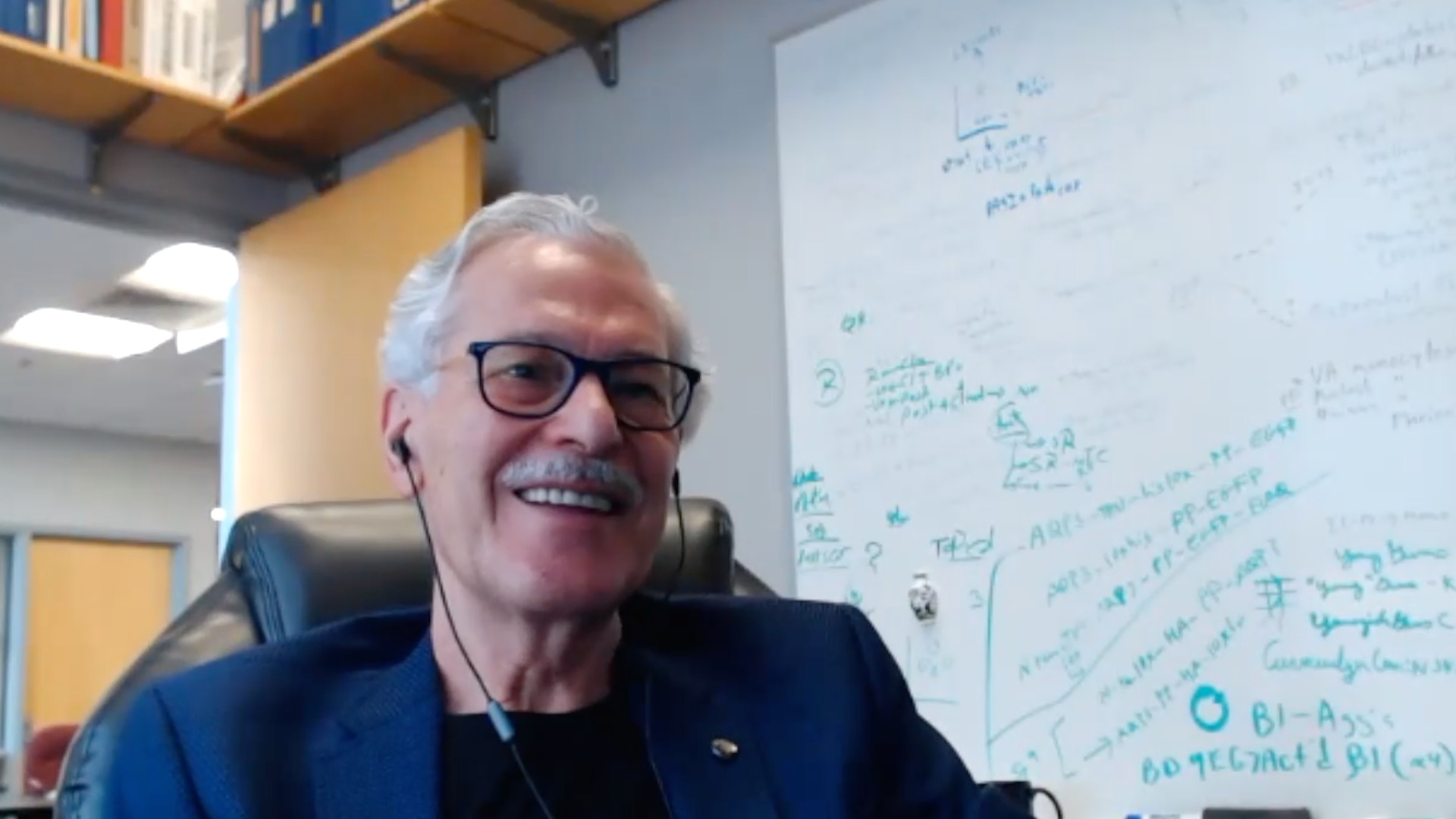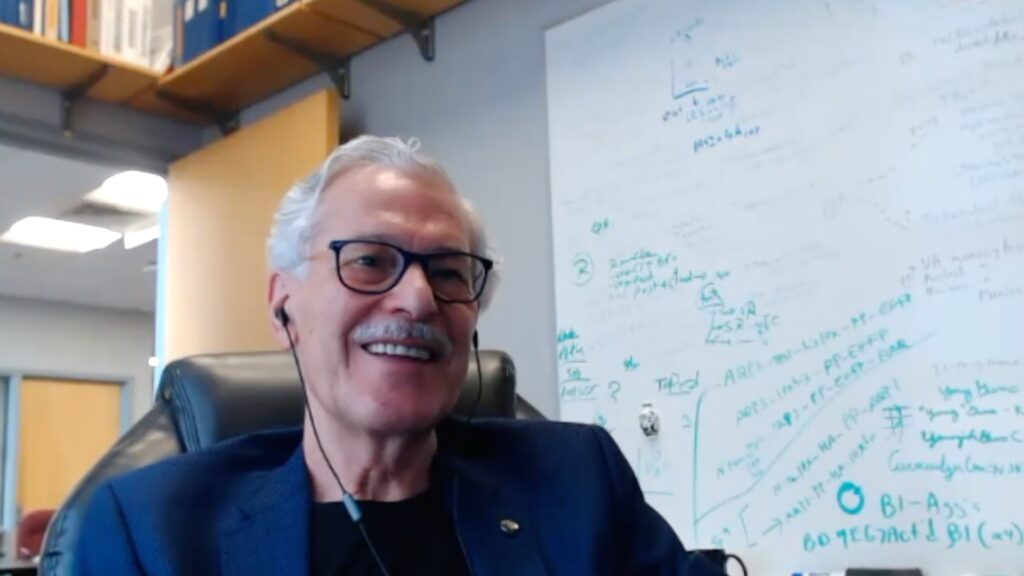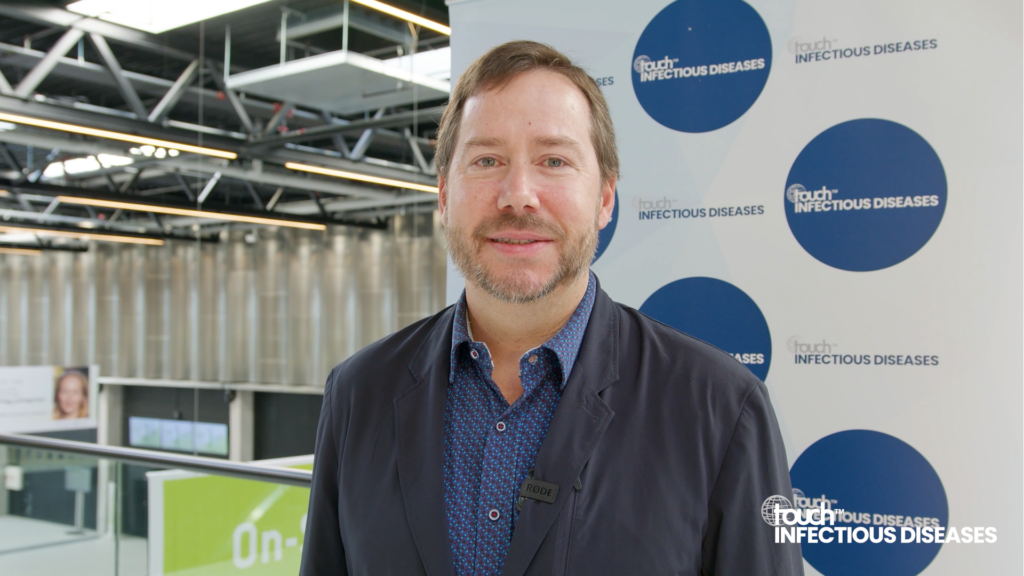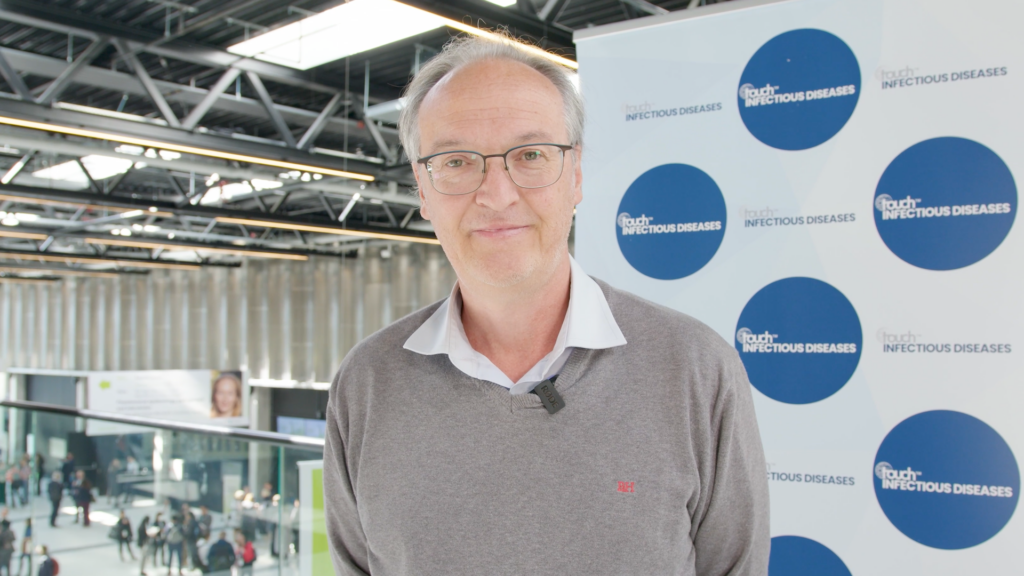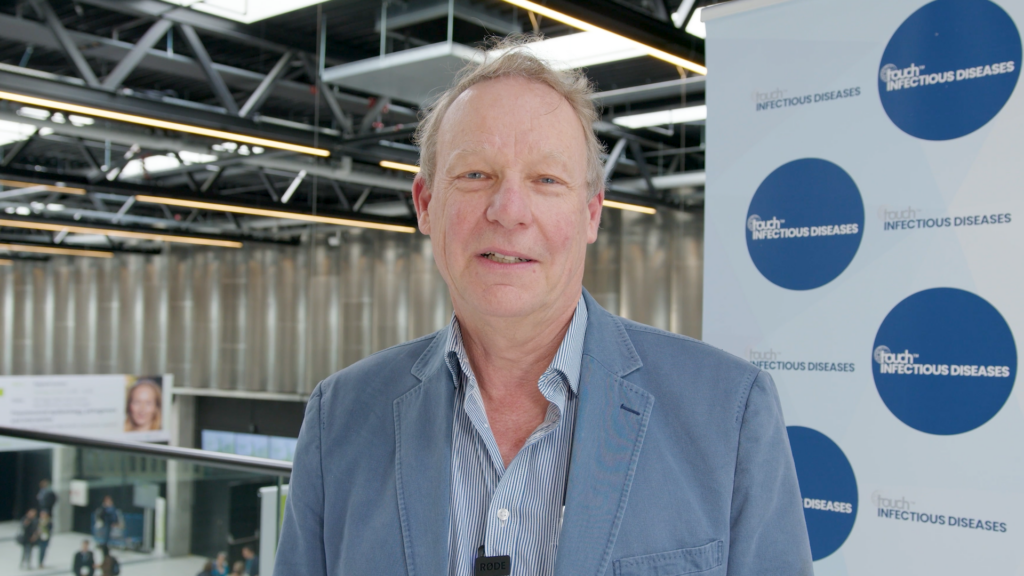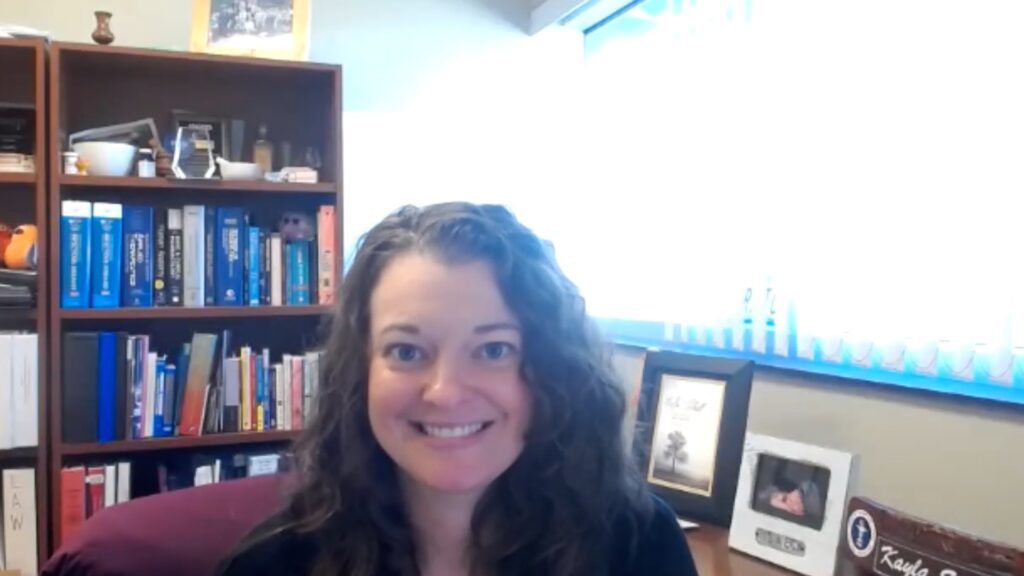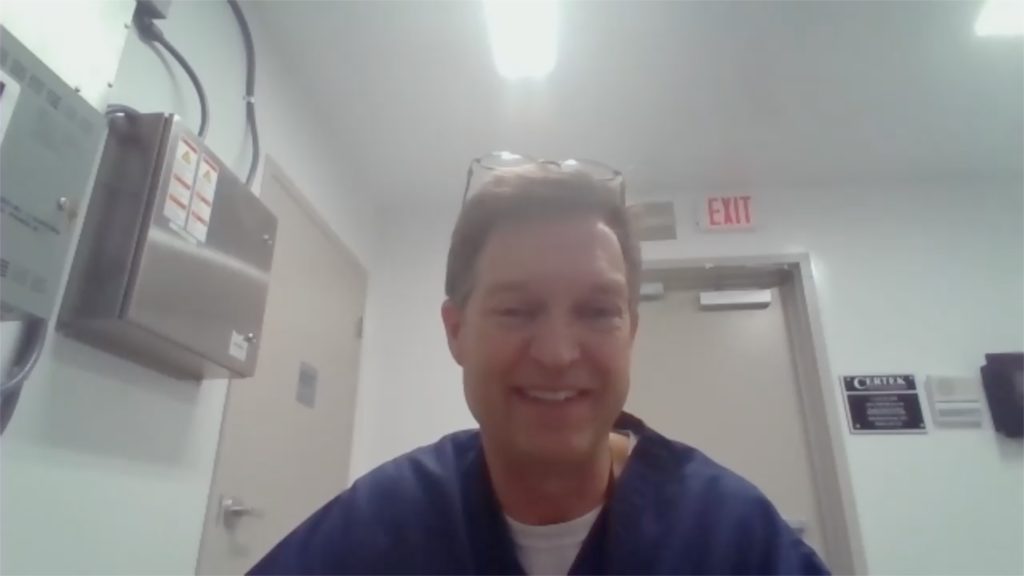ReSTORE (NCT03667690) was a phase 3, randomised, double-blind, non-inferiority trial comparing the efficacy and safety of rezafungin and caspofungin in candidaemia and invasive candidiasis. We were delighted to talk with Prof. George Thompson (University of California, Davis, School of Medicine, Sacramento, CA, USA) around the ReSTORE analysis investigating all-cause and attributable mortality with rezafungin.
Access an interview with Prof. George Thompson discussing the ReSTORE and STRIVE pooled analysis
The abstract ‘All-cause and attributable mortality in invasive candidiasis and/or candidaemia with rezafungin and caspofungin treatment: outcomes from the ReSTORE trial‘ (Abstract number: O1136) was presented at ECCMID 2023, 15-18 April, 2023, Copenhagen, Denmark.
Questions:
- What is the mechanism of action of rezafungin and what is the rationale for its use in candidiasis and candidaemia? (0:11)
- Could you give us a brief overview of the methodology and findings of the ReSTORE trial? (0:31)
- What was the rationale for your analysis looking at all-cause mortality? (0:51)
- What were the findings of this analysis and how will they optimise the use of rezafungin in clinical practice? (1:06)
- What impact will the recent approval of rezafungin have on clinical practice? (1:25)
Disclosures: George Thompson discloses consulting for: Astellas, Cidara, F2G, Mayne, Mundipharma, and Scynexis; receiving grant/research support from: Astellas, Cidara, F2G, Mayne, Mundipharma, and Scynexis; serving on advisory boards for: Astellas, Cidara, F2G, Mayne, Mundipharma, and Scynexis.
Support: Interview and filming supported by Touch Medical Media Ltd. Interview conducted by Victoria Jones/ Katey Gabrysch.
Filmed in coverage of the 33rd European Congress of Clinical Microbiology & Infectious Diseases.
Access more content on fungal infections & for further ECCMID 2023 highlights visit here.
Transcript
What is the mechanism of action of rezafungin and what is the rationale for its use in candidiasis and candidaemia? (0:11)
Rezafungin is a novel echinocandin and it has some unique pharmacokinetic characteristics compared to the other echinocandins, so allows for once a week dosing. It inhibits fungal glucan synthesis as its major mechanism of action.
Could you give us a brief overview of the methodology and findings of the ReSTORE trial? (0:31)
So as a function compared to a conventional dose caspofungin in a phase III clinical trial of invasive candidiasis and candidaemia. So, we enrolled patients with either invasive candidiasis or candidaemia and then followed them for all-cause mortality in their outcomes at 30 days.
What was the rationale for your analysis looking at all-cause mortality? (0:51)
The rationale for the analysis was really twofold. The FDA and the EMA had different primary outcomes, so we really had to adhere to both of those for the conduct of the study as the primary outcome measure of interest in this.
What were the findings of this analysis and how will they optimise the use of rezafungin in clinical practice? (1:06)
The major finding was rezafungin was non inferior to caspofungin. So really very equivalent outcomes for both groups in the study. But the convenience of rezafungin and the unique pharmacokinetic characteristics really do give it some big advantages over caspofungin.
What impact will the recent approval of rezafungin have on clinical practice? (1:25)
I think that we really have welcomed new antifungal drugs. This is a set of diseases we’ve struggled with for a long time, and having another sort of agent in our anti-fungal armamentarium really just expands our options for treatment.
Subtitles and transcript are autogenerated.

